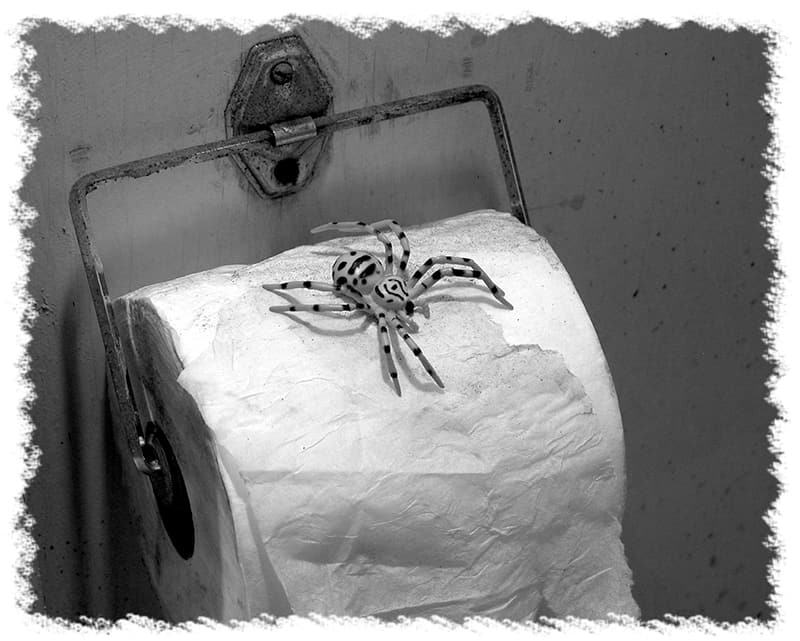Dangull-ektrix!” the RangeMonster bellowed, squinting at a twisty-wisp of black smoke curling upward from the rocker switch on his plywood control console. “Loo-KEY! Yahl FAHR-opp attair gice jinni naow, hyahr?”
Others less dialectically gifted than I may not have understood what the RangeMonster — that title was `blazoned on his sweatshirt — was saying, but fortunately, I knew something of his language. It’s called Jaw-Juh Muh-Zurran; a patois spoken by a small handful of nomadic peoples originating in the state of Georgia, and later migrating to Missouri. A loose translation of his outburst would be, “These darned electrical devices! Lucas! Would you please start the gasoline-powered generator now? Do you hear me?”
The RangeMonster dearly wanted to show off his motorized target-return system to “thet citti feller” — me — and was most upset when the controls shorted out. Judging from the inky smoke smudges and burns around the switch, this wasn’t the first time. He had taken a wheeled irrigation line, welded on some target frames, and rigged it to roll out to the 100-yard line and back. It looked like some kinda bizarre crossover from Star Wars to The Dukes of Hazzard, but, I was assured, it worked “lak a summa-gun.”
Then Lucas — “Lukey” — ambled out. Construct a roughly humanoid figure from six and a half feet of cables and angle iron, wrap it in bib overalls, top it with a shock of yellow wheat straw, insert sugar cubes for teeth, and you’ve got Lukey. He tore a tarp off an ancient generator, spit on his right thumb and forefinger and smiled. The RangeMonster smiled, too. “Yawl watch ’issere,” he drawled. “Itta be goo-o-o-o-o-d.”
Ridin’ The Lightning
Over the next coupla minutes, I learned that in order for “jinni” to run, a spring-loaded bridging device had to make contact with two different voltage widgets. The spring, however, appeared to have sprung sometime during the Spanish-American War, and just sorta laid there, occasionally jumping out of place when Jinni hacked up a hairball.
That’s when Lukey would crane his body out gingerly like a crippled stork, grab that “sparkin’ rod” with his spit-wetted fingers, press it down, and ride the lightnin’! until Jinni settled down again to a guttural rumble.
Each time this happened, Lukey’s body shook like a sack `a crazed weasels, his yellow thatch spiked straight up and his eyes popped bigger, taking on the appearance of fried blue cat’s-eye marbles. Once, when he appeared about to involuntarily scratch his left ear with his right hind foot, I moved to grab him.
“Lee-vim be, Connor,” the RangeMonster warned. He advised me if I were to grab Lukey “whilst he’s got a-holt a’ that sparkin’ rod,” I’d be doin’ Saint Vitus’s Dance an’ drooling down to my socks. “Besides,” he said, “Lukey likes it!” I hastily jotted down, “UN-Written Range Rule #29: Don’t Grab Lukey When He’s Grabbin’ Jinni.”
Chapter In My Pretend Book
I’ve shot at a lot of ranges, and learned lots of rules you’ll never see posted on signboards. Like, “Never say the words cheese or mother to the range tech wearing the aluminum-foil hat.” At another, “If the range-resident raccoon takes an interest in your lunch, just back away and don’t whistle!” They’re the kind of rules all the locals know — and visitors learn the hard way.
I have a certain history with snakes, spiders, centipedes and other creepy-crawlies. I’ve spent a chunk of my life lyin’ doggo in situations where I had to let `em slither & skitter over my camo-clad self in strict silence, and I did not get used to it. Instead, I developed a barely-controllable case of the Extreme Heebie-Jeebies. When I saw the men’s room at one particular range, my first, second and third inclinations were to tiptoe into the dank-drippy swamp beyond and take my chances with the copperheads and cottonmouths. But others were going in, and I had urgent business to conduct, so…
It was a “basement” facility, though it looked like it had possibly been built above ground, and then submerged into the muck on its own, like a mossy, stone submarine. The first three warped, wafer-thin plywood stalls looked bad enough, but the last one on the right, butted against the mud-weeping rock wall was, well … foreboding. I noted that men were waiting to use the other stalls; not the fourth.
It wasn’t just the shoulder-squeezing width, the fine patina of dust on the toilet lid, or the strangely yellowed, unused appearance of the toilet paper that disturbed me. After re-conning the seat and taking the throne, I realized what it was: the eerie feeling of — you ain’t alone, dude. I finished hurriedly, and reached for the TP.
Rotating the roll brought the owner of that paper up into fighting position — a fist-sized spider, straight outta science fiction. I recoiled left, rubbin’ the rock wall and instantly felt something scurry onto my shoulder. Have you any idea how huge a 5″ centipede looks when he’s reared up on his back fifty legs, wavin’ the front 50 at you, 3″ from your nose?
I paid for damages to those fragile stalls — the ones which had stood — past tense — between me and the stairway. I apologized to all and sundry for the deafening screams. One fellow who had been severely constipated thanked me. He was cured. And I wrote in my book: “UN-Written Range Rule #30: The far right stall is unused for a reason. Try the swamp.”
